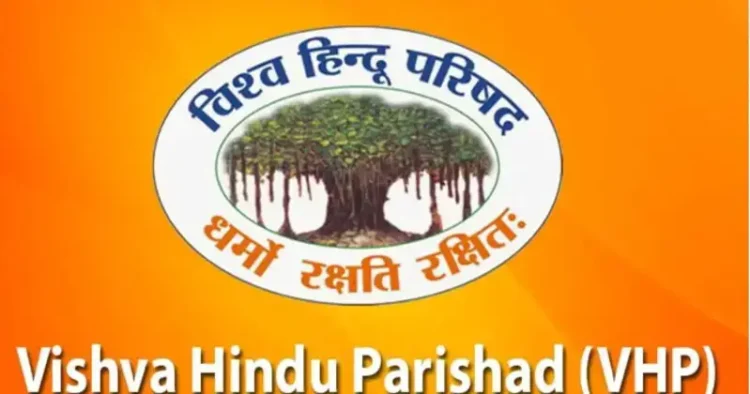In a significant development, the Vishva Hindu Parishad (VHP) has formally approached the Election Commission (EC), urging the cancellation of political party registrations for the Bahujan Republican Socialist Party (BRS), Congress, and the Majlis party. The VHP accuses these parties of violating constitutional principles by making promises of reservations based on religion, a move deemed contrary to the essence of a fair and secular democracy.
The VHP, a prominent Hindu nationalist organisation, submitted a memorandum to the Chief Electoral Officer, Vikas Raj, expressing their concerns. The memorandum, signed by VHP State Secretary S Pandarinath, Vice President Sunitha Rammohan Reddy, and other key members, alleges that the mentioned political parties are engaging in “appeasement politics on religious grounds,” particularly in relation to religion-based schemes. According to the VHP, such practises not only contravene the principles of a fair and secular democracy but also undermine the sanctity of the Indian Constitution.
“As an organisation committed to fostering harmony and preserving the cultural and religious fabric of our nation, we find the promises of Muslim reservations made by these parties deeply troubling. This is against the ethos of a secular and inclusive society,” stated the memorandum.
The VHP emphasised that the promises made by these parties regarding Muslim reservations are particularly concerning, especially in light of a significant legal precedent. The organisation pointed out that a five-judge bench of the Andhra Pradesh High Court had declared Muslim reservations unconstitutional on November 8, 2005. Furthermore, the VHP noted that the matter is currently under consideration by the Supreme Court. They argued that pursuing such promises and policies that are sub-judice demonstrates a clear disregard for the legal processes in the country.
The call for the cancellation of party registrations comes at a time when the debate on reservations based on religion has been a contentious issue in Indian politics. The VHP’s stance reflects the concerns of those who believe that such promises could undermine the secular foundation upon which Indian democracy is built.
Political observers note that the VHP’s move is likely to add fuel to an already heated debate surrounding the delicate balance between preserving the rights of various communities and maintaining the secular character of the state. Critics argue that reservations based on religion could potentially lead to social and political divisions, while proponents contend that it is a necessary step to address historical inequalities and ensure representation for marginalised communities.
The VHP’s plea to the Election Commission raises questions about the role of religion in electoral promises and whether such commitments should be subject to scrutiny by electoral bodies. The EC, tasked with ensuring free and fair elections, now faces the challenging decision of navigating the intersection between political promises, constitutional principles, and legal considerations.
As the matter unfolds, it remains to be seen how the Election Commission will respond to the VHP’s appeal and what impact it may have on the broader discourse surrounding reservations and the secular nature of Indian democracy.



















Comments